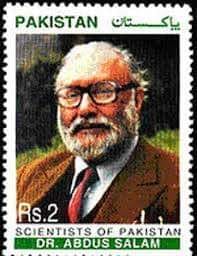Author: Babu Gogineni
A NATION’S PRIORITIES
Pakistan’s Space and Upper Atmosphere Research Commission (SUPARCO) was established in 1961, a full eight years before India’s ISRO. Of course ISRO was preceded by the ‘Indian National Committe For Space Research’ (INCOSPAR) which was established in 1962 by the visionary Jawaharlal Nehru and the distinguished Scientist Vikram Sarabhai.
Even that way Pakistan started a year before India. But where is Pakistan today and where is India today in terms of Space research or Missions launched?
Though military-oriented right from the beginning, Pakistan did not prioritize research or activity in science at all. If you look at the sky instead of peering into Kashmir you too can grow to heights that every nation deserves.
On the other hand, ISRO, Indian Space Organization, today ranks alongside the greatest Space Organizations in the world with a dazzling record. It maybe that America sent the first human to the moon already 40 years before we sent an unmanned mission to the moon, but that is because we were independent only for a few decades, whereas America was free since the 1770s. But our priorities were right in this area.
Along with India, Pakistan took birth in 1947, but Pakistan’s Constitution was ratified only in 1973: it took a full 26 years and until after the split of the nation into Pakistan and Bangladesh. And then the second Amendment to the Constitution was the declaration of the Ahmadis as non-Muslim. What a priority.
It may be of interest that Pakistan appointed the distinguished Dr Abdus Salam as the first chairman of SUPERCO and had therefore a promising start. But when in the 1970s Pakistan under Zulfikar Ali Bhutto declared all Ahmedias as non-Muslim, Prof. Salam, an Ahmedi, left Pakistan.
When in 1979 Prof. Salam was awarded the Nobel Prize in Physics, by then he was a non-Muslim for Pakistan! What pride for Pakistan after literally exiling its son?
Further, in 1984 Zia ul Haq passed an Ordinance which even prevented the Ahmadias from reciting from the Koran, or even using the traditional greeting ‘As-salamu alaykum’. Peace be with you.
Pakistan is the only Muslim country in the world to declare the Ahmedis as non-Muslim. This is a big problem for the country’s nearly 5 million Ahmadis, even before the law, even if the Ahmadis come from the Sunni traditions: hundreds of Ahmadis were killed in the 1953 Lahore riots; later there were the big Anti-Ahmadi riots in 1974. Frequently Ahmadi mosques are attacked and many devout are murdered while praying. Recently, after Prime Minister Imran Khan appointed Atif Miyan, a distinguished Economist from Princeton to be economic adviser, he had his appointment revoked because he was an Ahmadi.
A condition of getting a passport or a national ID card in Pakistan is that the applicant has to declare on oath and signature that Mirza Ghulam Ahmad is an impostor prophet and that all Ahmadis are non-Muslims.
Back to the great scientist: Prof. Salam was a devout man and he even recited from the Koran when accepting the Nobel prize. When he died in Oxford, his body was brought to Pakistan where the burial took place. On his grave was an epitaph ‘First Muslim Nobel Laureate’. Finally one, you would think, but first by Magistrate’s order, and then by Govt. of Pakistan’s action, the word Muslim was obscured. He was an Ahmadi, not a Muslim. The Land of the Pure was interested in the purity of religion, not the honor of the Humans. This will be the fate of all nations and peoples obsessed by religion. If the Universe was indeed created by God would that God need people in a small country on a small planet going around one of a trillion stars?
What an honor for a nation’s great son, a great Scientist who also had a noble personality. Prof. Salam was not Richard Feynmann with his wild and ugly ways. Here was a gentleman, smooth in his life and sweet and humble in his words, who peered deep into the Universe and its ways, but who in his country of birth was judged only on whether he was a Muslim or not.
The priorities of a Nation will decide its future. When history or religion become your focus, that is where you wallow, and the present and the future are in danger of neglect.
I went to the great man’s lecture at the Birla Planetarium in Hyderabad and shook his hand. His was an imposing physical presence with a gentle calm voice and incongruously rough hands – perhaps because of a life time spent toiling for science and knowledge.

